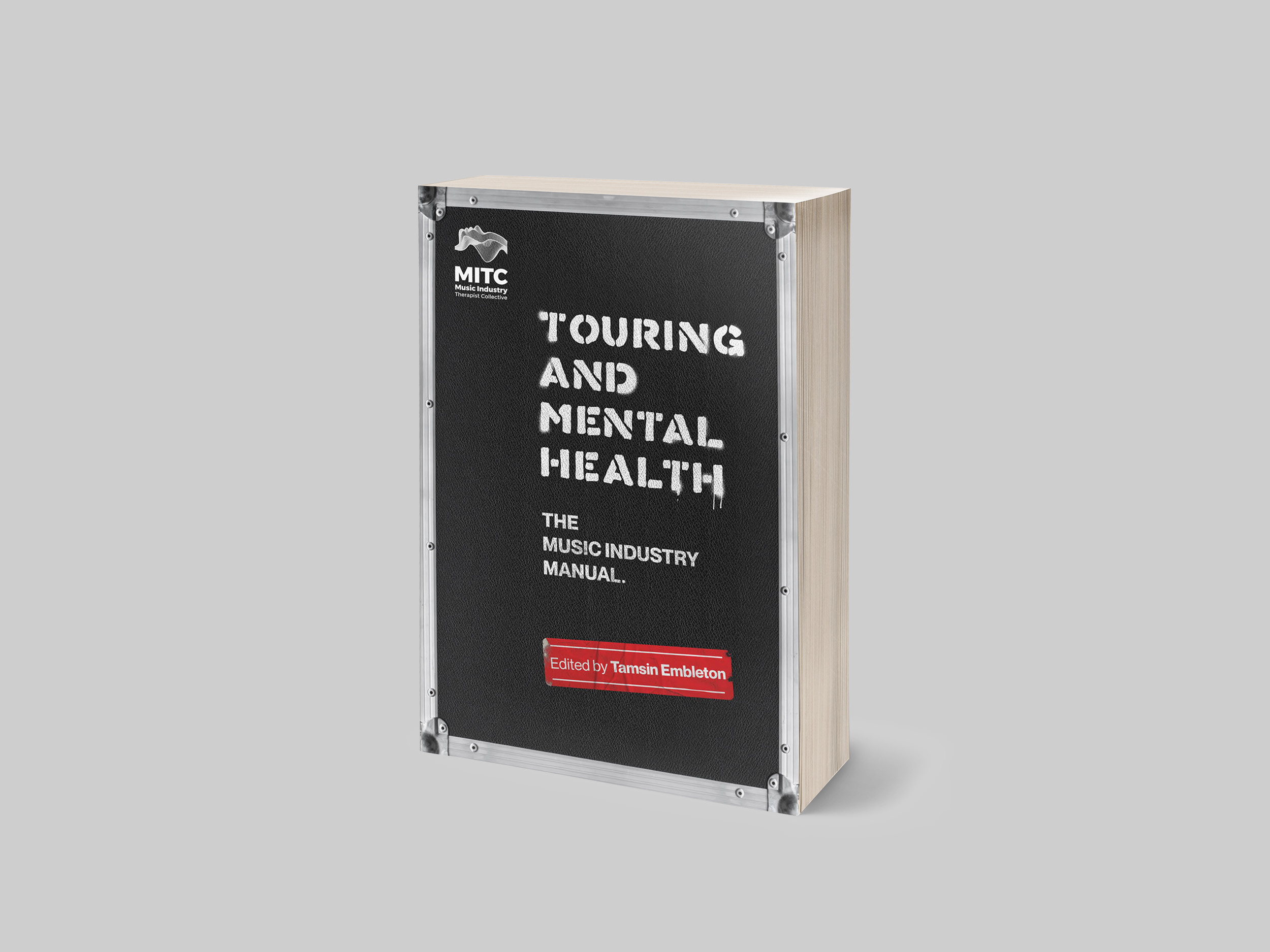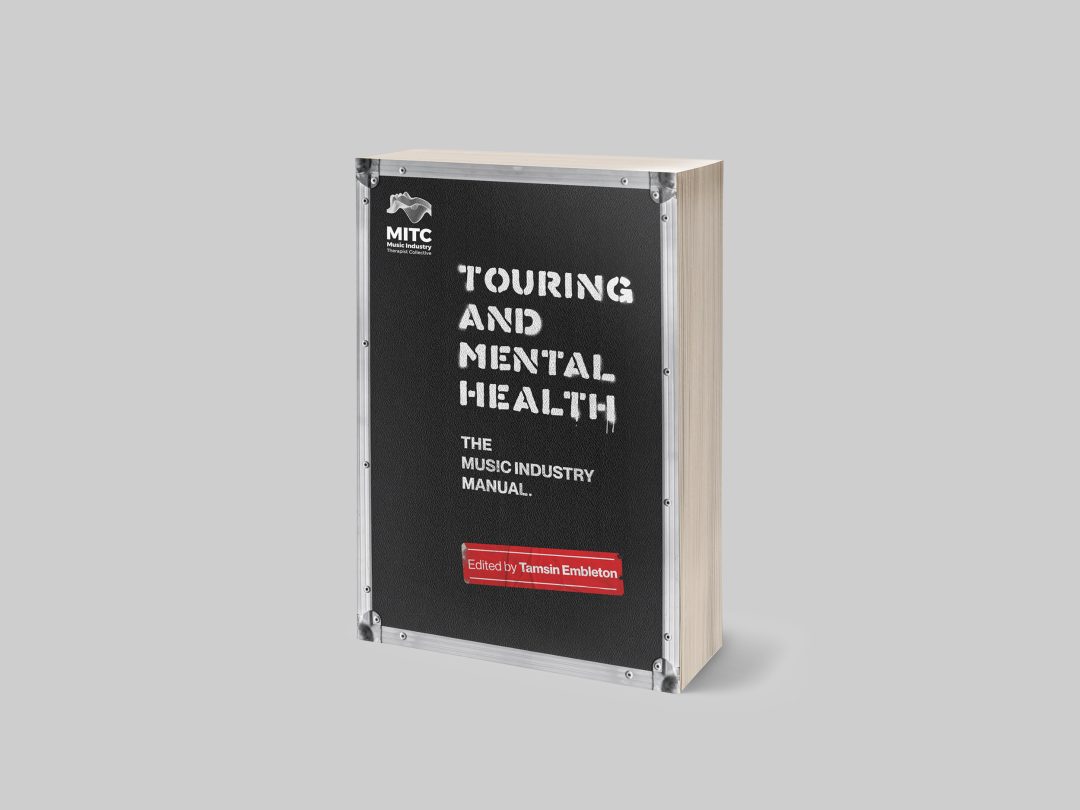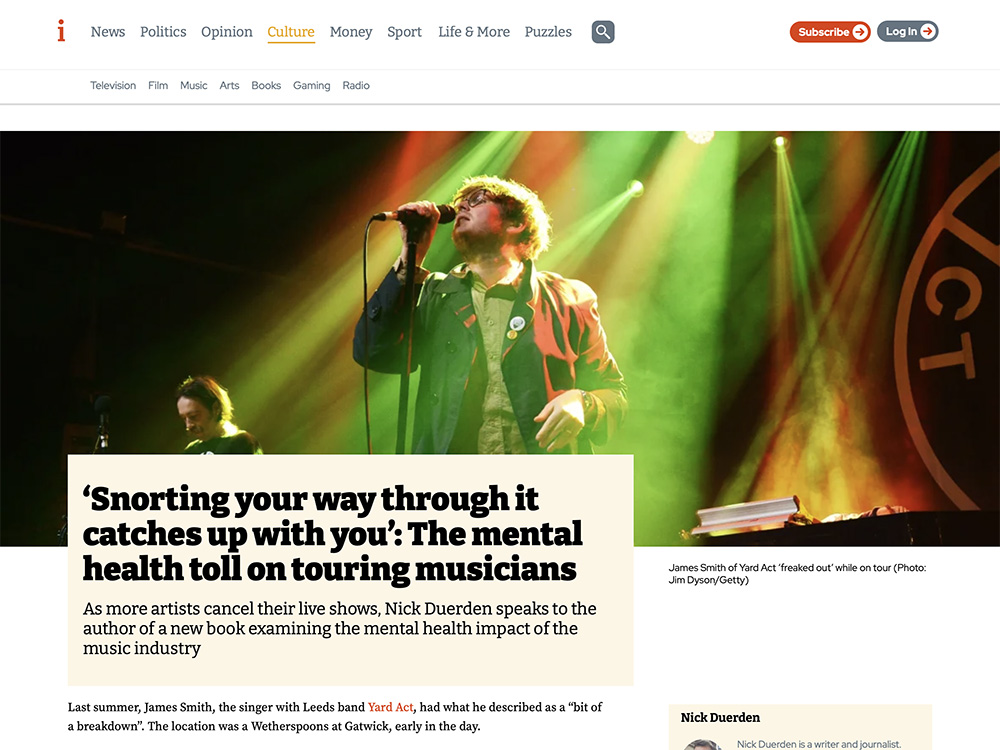The “Touring and Mental Health Manual” is an essential guide for anyone in the music industry who wants to care for their mental health while on the road. We speak with the editor Tamsin Embleton to learn more.
Mental health in the music industry is paramount, as it directly impacts artists’ well-being, creativity, and overall productivity. Musicians often face intense pressure, performance anxiety, and irregular schedules, leading to stress and burnout.
Significant initiatives have addressed mental health more openly and attempted to foster a supportive culture that breaks down stigmas and encourages seeking help when needed. Moreover, nurturing mental well-being leads to career longevity.
Arguably, ‘Touring And Mental Health: The Music Industry Manual’ would not have been made 10 or 15 years ago. That’s a testament to how far things have developed, and we wanted to speak to the editor, Tamsin Embleton, to learn more about this essential publication.
Attack: You’ve had an interesting career to date. Could you tell us how you arrived at editing this ‘encyclopedia’ of music, mental health and touring?
Tamsin Embleton: I spent many years as a booker – booking venues, festivals and events in a large recording studio called Metropolis Studios.
After being in therapy myself, I gravitated towards retraining as a psychotherapist and during the course of that training, I began to research the psychological impact of touring.
After I finished that research in 2018, I began to think about turning it into a book… It was important to me that the other writers I brought on board were specialists in their respective areas, and I wanted to pay them for their time, so I set up a crowdfunding.
Michael Rapino of Live Nation saw that and sponsored the book (later buying 3000 copies for venue and festival dressing rooms). This year we finally released the book in March 2023, and now we have a Spanish version coming out in late October.
I also run a group called Music Industry Therapist Collective – we’re all ex-music industry therapists, psychologists and a medical doctor. We’re currently based across the US, UK and branching into the EU.

The book feels very much like a book of today, in that conversations around mental health in music have progressed significantly this past decade. Do you think the changing narrative is making a difference?
Definitely. There is greater mental health literacy which is helping to shift the stigma and shame around talking about getting help.
There is a flip side in that wellness practitioners offer a lot of inaccurate advice on social media. These people often have valuable life experience but little by way of clinical training – which means the advice isn’t always aligned with what we know and recommend from a clinical perspective.
Given how far these discussions have come, where are they heading? Where might things develop over the next five years?
I hope we continue to deepen our understanding of creating better interpersonal safety within the music industry.
To do that, we must be willing to examine our blind spots, biases, prejudices, weaknesses and areas for growth (and how they impact others!). We must also model good practice around boundaries, aftercare, and balance between work life and home life.
The book is enormous! It covers everything! Was there anything missing out that might make a second edition?
I want to dive deeper into the relationship between an artist and their manager – as that can be very complex.
I think it would be helpful to zone in touring as a parent (with a child on the road, or at home), and to provide robust advice on financial security. Often it’s feast or famine – people spend what they have having a great time in the moment but perhaps not thinking of taking care of their future selves, so I think we could help people develop financial skills.
It could also be helpful to talk more about the differences between touring as a solo DJ and touring as part of a group.
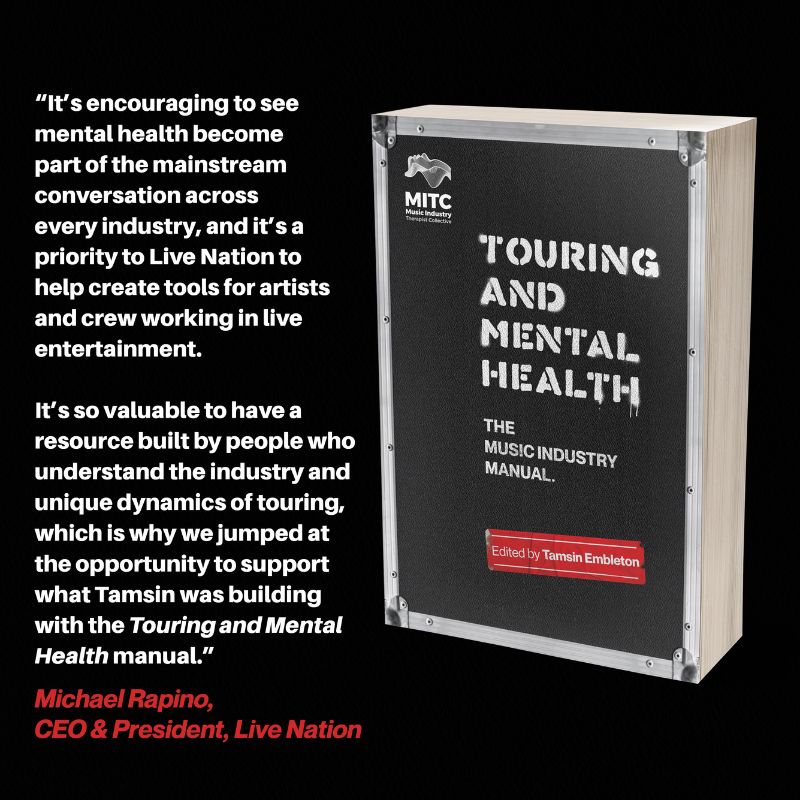
When editing it, despite your qualified background, what most took you by surprise that might surprise readers?
People experience touring in very different ways. You might assume everyone loves it and sees it as a great opportunity, but that’s really not the case. Many factors are at play: individual resilience and capacity for emotional regulation, temperament, and biological sensitivity towards stress.
Some people’s bodies are more reactive to stress, and they suffer more frequently from stress-related illnesses due to this. Healthy touring really isn’t one-size-fits-all!
You cover the stereotypical rock myth “live fast, die young” and “you must suffer for your art”. If feels this attitude is now outdated but also misunderstood from a mental health perspective?
This is a complicated one to answer, as some artists are pretty attached to the identity of a suffering musician. They might come to therapy thinking that if we help them feel better, they’ll lose their creative edge.
What tends to happen is the opposite – their capacity for expression broadens (and they are more reliable to work with as they aren’t at the mercy of their trauma!)
You discuss music reviews and the effect they can have. It’s anathema for journalists to amend something, especially an opinion, and this has become more commonplace in digital publishing, where it’s easier to make an edit. What’s the solution?
We all have to consider the impact of what we do on others. Journalists can do that, too.
I think it’s healthy for artists to put distance between what is written about them, and their own experience. If you spend too much time looking in the mirror, your face starts to distort. Spending excessive time online trawling reviews and absorbing other people’s opinions is the same – it distorts how you feel about your work or performance experience. Often, this isn’t helpful.
Do you see different touring members/skills being affected the same or differently? I.e. would all instrument technicians have similar mental health concerns?
Many social, psychological and physical factors shape mental health. Some are role-specific, and some are to do with your personal physiological, social and psychological make-up (which is informed by genetics, neurobiology, attachment, life experiences, temperament, group dynamics, experiences of discrimination, trauma etc).
Social media is widely assessed as having negative consequences for mental health. Are there any benefits, however?
Of course. It can help you build a profile and connect to like-minded others.
Attack readers are mostly electronic producers and DJs. If they are not touring musicians, how might this book help them?
The mental health concepts in the book apply to everyone, whether they tour or not.
If someone recognised themselves while reading this book, what should they do first to seek support?
Talk to someone you trust, and consider contacting a professional who can help you understand what you are going through.
Last question, on a personal note, what was it that drew you to The Kinks over The Beatles? That must have been an unpopular opinion in your home town!
Over-exposure. I returned to them later through the eyes of a 6-year-old and discovered them anew.
‘TOURING AND MENTAL HEALTH: THE MUSIC INDUSTRY MANUAL‘ is now available in the Attack Store.
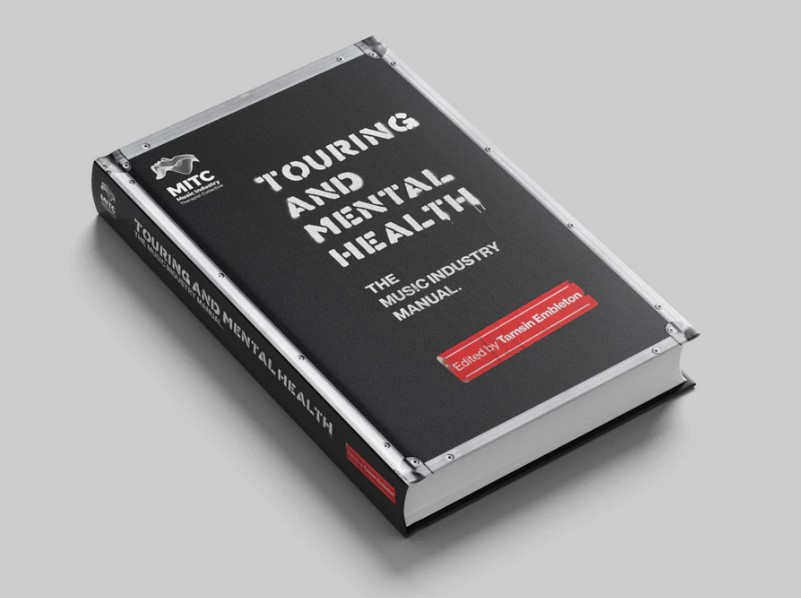
Find Tamsin Embleton on Instagram. Learn more about the Music Industry Therapist Collective online.

